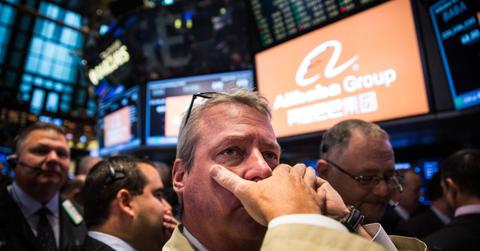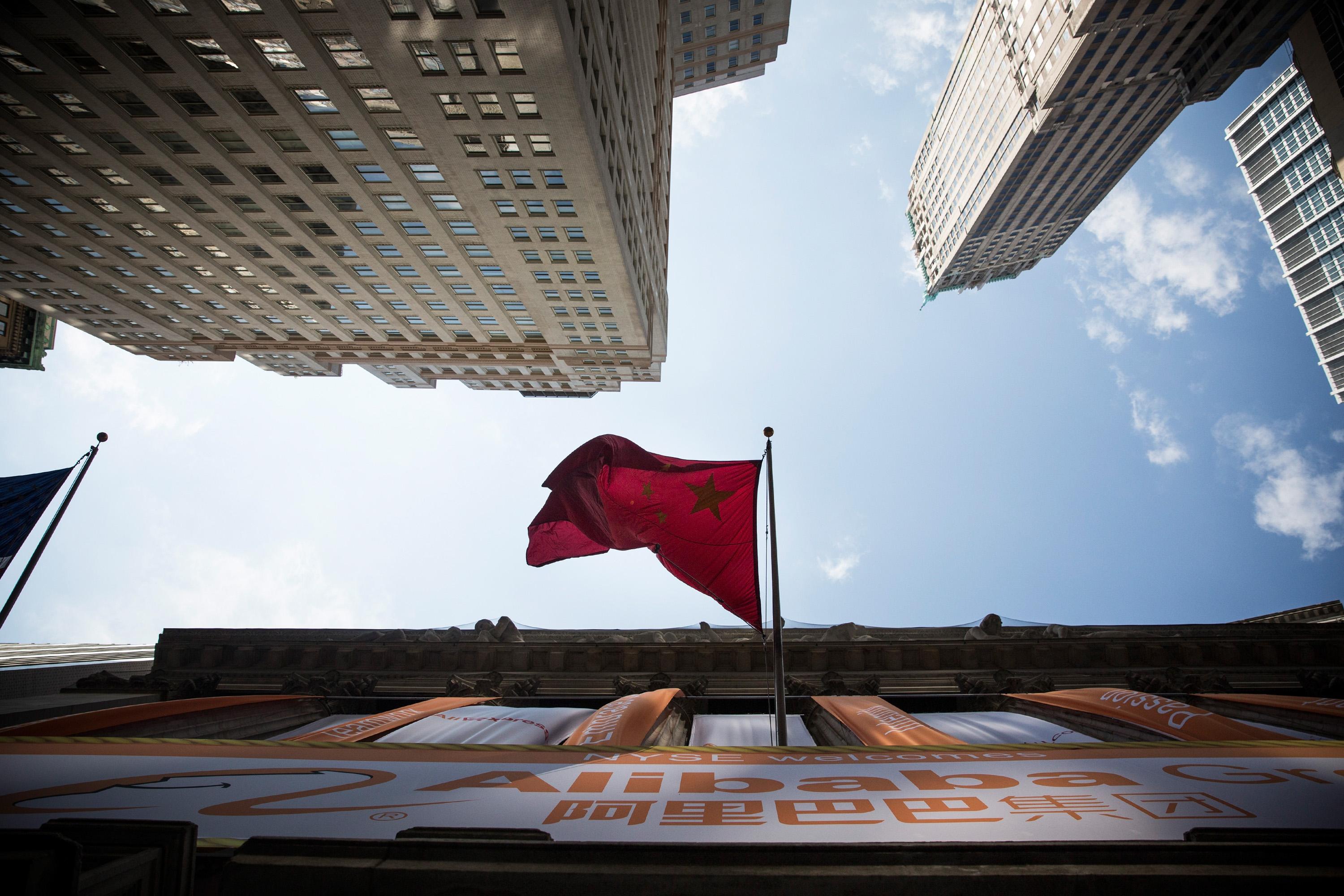What Happens if Alibaba Is Delisted and What Are the Chances It Will?
Alibaba stock has fallen to a new 52-week low amid delisting fears. What would happen if Alibaba is delisted from the U.S. stock markets?
Dec. 2 2021, Updated 8:09 a.m. ET

In 2020, the U.S. House of Representatives passed the Holding Foreign Companies Accountable Act, which could lead to foreign companies getting delisted if they don’t comply with the new standards. Even China is reportedly considering delisting Didi from the U.S. and also barring Chinese companies with a variable interest entity (VIE) structure to list in U.S. Incidentally, Alibaba (BABA) is structured as a VIE, raising fears that the stock might get delisted in the U.S. What would happen if Alibaba were delisted?
Alibaba holds the record of the largest IPO ever, listing on U.S. stock markets in 2014 and raising $25 billion. In November 2020, Alibaba-backed Ant Financial looked set to break Alibaba’s record with a dual listing in Shanghai and Hong Kong before its listing was put on hold by Chinese authorities. In 2019, Alibaba also listed in Hong Kong, in an apparent bid to mitigate the risk of delisting in the U.S.
Will Alibaba be delisted?
The Holding Foreign Companies Accountable Act makes a provision to delist foreign companies which do not comply with U.S. Public Accounting Oversight Board audits for three years in a row and are controlled or owned by foreign governments.

Foreign companies would also be subject to independent audits like their U.S.-based counterparts. The regulations aim to create parity between U.S. and foreign companies. They aim to avoid accounting scandals like Luckin Coffee. While investigating the scam, U.S. regulators did not receive adequate support from Chinese authorities.
However, there's also a political side to the bill, which has bipartisan support in Washington. The consensus is that the strategic threat arising from China must be addressed, but there's disagreement on approach.
The bill would give some time to companies to comply with regulations. If Alibaba does not comply with the new requirements, it would face delisting. Although Alibaba is not owned by a foreign government, Alibaba co-founder Jack Ma is a member of the Chinese Communist Party.
However, despite being a long-time party member, Ma was targeted by the country over his remarks against the regulators and was not seen in public for months after the comments. Such disappearances and reappearances have become quite normal in China now.
The latest threat to Alibaba's U.S. listing comes from China's proposed law.
Chinese companies listed in the U.S. are looked upon with suspicion in both China as well as the U.S. Didi is a perfect example here and China reportedly wants the company to delist from the U.S. over data security concerns.
Now, Bloomberg has reported that China is considering barring companies with a VIE to list in the U.S. However, the China Securities Regulatory Commission has denied these reports and said there are no plans to delist Chinese companies with a VIE.
In a typical VIE structure, a Chinese company floats a shell company in a tax haven. The shell company is then listed in the U.S. and has a share in the profits of the underlying company through contracts. SEC chair Gary Gensler has also spoken against these VIE's. He also said that many investors don't understand the risks associated with these VIEs.
Will I lose my money if Alibaba is delisted?
If Alibaba stock delists from the U.S., expect a crash in its stock price. The recent crash in BABA stock is related to delisting fears only.
Now, while BABA delisting is not imminent, one has to be prepared for the possibility. If the stock delists from the U.S. markets, one of the following might happen.
- BABA stock would trade on the OTC markets.
- U.S. investors would get the Hong-Kong listed shares of Alibaba in lieu of the U.S-listed shares.
- Alibaba would buy out the stake of U.S. investors through repurchase.
If BABA moves to OTC markets, stockholders in the U.S. would maintain the same number of shares but the liquidity might be low. As for the Hong Kong shares, you might need to check if your stock broker allows trading in Hong Kong-listed stocks.
The third possibility could be that BABA repurchases its U.S.-listed shares. In the rumored DiDi delisting, China is said to be considering taking DiDi private again, in which case it would have to repurchase the shares it sold in the IPO.
What happens to shares when a company gets delisted?
Delisting can be voluntary or involuntary. Companies sometimes choose to delist their shares and go private, as Elon Musk famously tweeted about Tesla. In a voluntary delisting, companies typically pay a premium on their current stock price to buy back shares from investors.
In contrast, in an involuntary delisting, the company is forced to delist its shares by regulatory authorities. In such cases, investors maintain the same number of shares, but the shares are traded on over-the-counter markets instead of regular exchanges.
